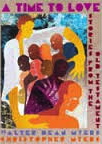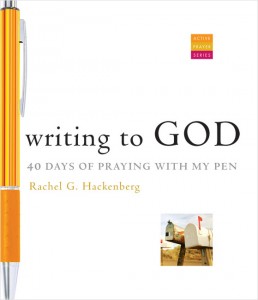Sometimes at work, when I’m puzzling and pondering and trying to flesh out a word or idea, I swivel my chair away from the computer and turn to face my bookshelves. The colorful book spines and carefully worded titles (along with the content they represent) function like a sieve through which I pour my questions and my musings to see what may emerge.
This week — with a new school year on the horizon and Dirty Sexy Ministry posting her wisdom on “So You’re Going to Seminary” and @ABSWBerkeley asking what books I might recommend for a pre-seminary reading list — I’ve spun in my chair to contemplate my bookshelves again. Quite a few of these books were purchased during- and post-seminary, but which ones would be useful to read pre-seminary?
 Part of me mourns the idea of posting a concise list, regretting the many brilliant books that will be excluded. (Seriously, I consider book-buying very much like ministerial formation: never ending.)
Part of me mourns the idea of posting a concise list, regretting the many brilliant books that will be excluded. (Seriously, I consider book-buying very much like ministerial formation: never ending.)
But those of you who are newly-enrolled in seminary have neither endless time nor endless funds, and many serious academic works will be assigned to you soon enough, so for the purposes of a “Summer Before Seminary” reading list, I offer five books that will likely not be required of you in seminary. These are not massive volumes or scholastic treatises. Most are short. Several are fiction. But all of them will knead your spirit and your mind in important ways as you prepare for seminary.
 Biblical studies: The Manga Bible: From Genesis to Revelation by comic creator Siku. Before you tackle ancient languages, historical criticism, non-canonical texts, and Bible commentaries, remember that the Bible is a story with a plot line, overarching themes, and dramatic structures. To help you experience the Bible as story (and to refresh your memory of its particular stories), The Manga Bible is a quick and visually engaging read.
Biblical studies: The Manga Bible: From Genesis to Revelation by comic creator Siku. Before you tackle ancient languages, historical criticism, non-canonical texts, and Bible commentaries, remember that the Bible is a story with a plot line, overarching themes, and dramatic structures. To help you experience the Bible as story (and to refresh your memory of its particular stories), The Manga Bible is a quick and visually engaging read.
Extra credit: The Testament of Mary, a novel by Colm Toibin. Begin to understand — by way of a powerful narrative — that stories about God and stories about Jesus were told, written, and shared for very particular purposes. (Also, you need a good cry before seminary.)
For your bookshelf: Global Bible Commentary by Daniel Patte. Scripture is read differently in different social & geographic locations; singular and literal biblical truth is a myth — know this, learn why this is, and look to this book to remind you of it.
 Systematic theology: God Went to Beauty School by Cynthia Rylant. How we organize our beliefs has everything to do with how we perceive the order of the world — and how we see ourselves within that order. You’ll learn this in seminary by reading a whole lot of dead white guys, by reading a whole lot of living white guys, and (I hope) by reading many theologians of color who give voice to liberation theologies and First People theologies and non-Western theologies. But first, Cynthia Rylant will begin to tease out the layers of your own theological assumptions with her deceptively simple poems in God Went to Beauty School.
Systematic theology: God Went to Beauty School by Cynthia Rylant. How we organize our beliefs has everything to do with how we perceive the order of the world — and how we see ourselves within that order. You’ll learn this in seminary by reading a whole lot of dead white guys, by reading a whole lot of living white guys, and (I hope) by reading many theologians of color who give voice to liberation theologies and First People theologies and non-Western theologies. But first, Cynthia Rylant will begin to tease out the layers of your own theological assumptions with her deceptively simple poems in God Went to Beauty School.
Extra credit: How to Think Theologically by Howard W. Stone and James O. Duke. At the recommendation of a colleague, this slim book is a helpful primer of the fields and purposes of theological study.
For your bookshelf: The Bluest Eye by Toni Morrison. Not necessarily before you enter seminary but absolutely before you graduate, it’s essential to grapple with the problem of theodicy, and no author puts the problem more exquisitely and painfully on paper than Toni Morrison.
 Practical theology: A Time To Love: Stories from the Old Testament by Walter Dean Myers. In beautiful short stories, A Time To Love retells familiar OT dramas with a tender twist that reveals love in places and moments where we have not been taught to see it. While its topic is scriptural, ultimately I place A Time To Love in the category of practical theology because it demonstrates the use of two critical ministry skills: listening for the untold story and welcoming complexity in scripture as in life.
Practical theology: A Time To Love: Stories from the Old Testament by Walter Dean Myers. In beautiful short stories, A Time To Love retells familiar OT dramas with a tender twist that reveals love in places and moments where we have not been taught to see it. While its topic is scriptural, ultimately I place A Time To Love in the category of practical theology because it demonstrates the use of two critical ministry skills: listening for the untold story and welcoming complexity in scripture as in life.
Extra credit: Microstyle: The Art of Writing Little by Christopher Johnson. A non-religious but invaluable book. Johnson’s introduction alone should convince you that it matters enormously how you use words — whether in a seminary paper, in a church newsletter article, at a hospital bedside, or in a sermon.
For your bookshelf: Learning While Leading: Increasing Your Effectiveness in Ministry, by Anita Farber-Robertson. Plan to reread Learning While Leading every time you want to smack your head against a wall because you’re certain that people would be better off if they just listened to you and let you tell them the right way to do church.
 Church history: A Passion for Life: Fragments of the Face of God, by Joan Chittister. Church history is not my forte; truth be told, I studied what history was required of me and not much more. But church history — denominational polity, too — examines people and movements that have responded intentionally (if not exactly perfectly and sometimes outright mistakenly) to the questions, “Why God?” and “Why Church?” Alongside exquisite icons, Chittister shares the stores of 20+ historical figures who have reflected God-in-action to the world.
Church history: A Passion for Life: Fragments of the Face of God, by Joan Chittister. Church history is not my forte; truth be told, I studied what history was required of me and not much more. But church history — denominational polity, too — examines people and movements that have responded intentionally (if not exactly perfectly and sometimes outright mistakenly) to the questions, “Why God?” and “Why Church?” Alongside exquisite icons, Chittister shares the stores of 20+ historical figures who have reflected God-in-action to the world.
Extra credit: Your denomination’s constitution and bylaws. Seriously. If you’re affiliated with a denomination, read its constitution and bylaws for its answer to the why of church and of ministry. Then while you’re online, browse the blogs of ministers to hear the first-person stories of why church and why ministry. (RevGalBlogPals can point you toward 300+ blogging clergywomen, for starters.)
For your bookshelf: The Reconciliation of Peoples: Challenge to the Churches, edited by Gregory Baum and Harold Wells. A survey (albeit a dated survey) of contentious and conflicted regions of the world, and the rubber-meets-the-road faith work of reconciliation and justice in those places.
 Spiritual formation: Writing to God, Praying in Color, Praying with the Body, labyrinth walking, fasting, singing, deep breathing — adopt a spiritual practice that engages your physical body and commit to it while you await the first day of classes. Likely you’ll test a variety of spiritual disciplines and prayer styles throughout your time in seminary, but your continuing spiritual formation is intrinsic to your professional and educational formation. Start now. (And yes, I know that it’s flagrantly biased of me to suggest my own book and others from my publisher.)
Spiritual formation: Writing to God, Praying in Color, Praying with the Body, labyrinth walking, fasting, singing, deep breathing — adopt a spiritual practice that engages your physical body and commit to it while you await the first day of classes. Likely you’ll test a variety of spiritual disciplines and prayer styles throughout your time in seminary, but your continuing spiritual formation is intrinsic to your professional and educational formation. Start now. (And yes, I know that it’s flagrantly biased of me to suggest my own book and others from my publisher.)
Extra credit: For Lovers of God Everywhere: Poems of the Christian Mystics, edited by Roger Housden. For Lovers of God Everywhere is a gem of a book to stir your faith, comfort your spirit, and challenge your theology with poetry from mystics across the generations.
For your bookshelf: Tucked into your favorite Bible on the shelf or bedside table, maintain a list on which you keep track of the last time you visited the doctor, the last time you had a session with a therapist, the last time you spent at least 24 consecutive hours at a continuing education event, the last time you had coffee with a friend, and the last time you got out of Dodge for a week. These activities are fundamental to your spiritual health and growth.
Blessings, prayers and happy reading to those who are entering seminary! For those who have attended seminary already, what books do you recommend as “must reads” for those who are just beginning their studies?

What a great list and a great idea! I would recommend Swallow’s Nest under spiritual formation. Thanks for the thoughtful suggestions.
Thanks for the recommendation, Deb. Always glad to be introduced to new titles!
Love this list! Too other good ones to mention, actually!! I wonder, though, if there could be a whole ‘nother category? Something that is not of one’s own culture or perspective? Reading about a minority people group, or a perspective on religious life from another denomination or faith that I don’t know anything about — or disagree with? I think that one of the takeaways for me my first year in seminary was that I did not have a clear picture of anything other than my small, narrow confer of the world…
It’s enormously important, Deb, I agree with you, to read perspectives and practices that are unfamiliar to our own social & theological locations. At this point for me, I’m cautious about creating an “other” category for “other” perspectives, because of the ease with which “other” becomes secondary and optional to the dominant voice. I try to pay attention to the diversity of perspectives within each topic, rather than assigning separate topics for those diversities. So the books above have some diversity of perspective and authorship, although I’ve not identified them explicitly. But yes — attentiveness to the richness of perspectives beyond our own worldviews is essential!
Yay! A reason to buy more books. I’ve done a great deal of reading, before, during and after seminary and I’ve only read one on your list. Time to go shopping. Yay, book allowance.
Yay books! 🙂
Where was this list when I was beginning seminary? Great choices? Now maybe compile a list for the newly graduated, recently ordained, and “first callers?” There I go thinking aloud, again…
Haha, great thinking aloud, Felicia! I’ll put some thought into it.